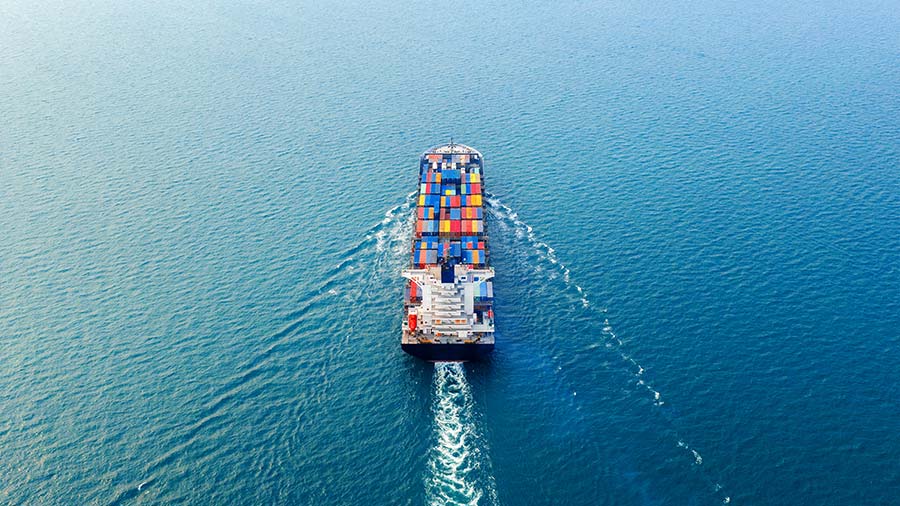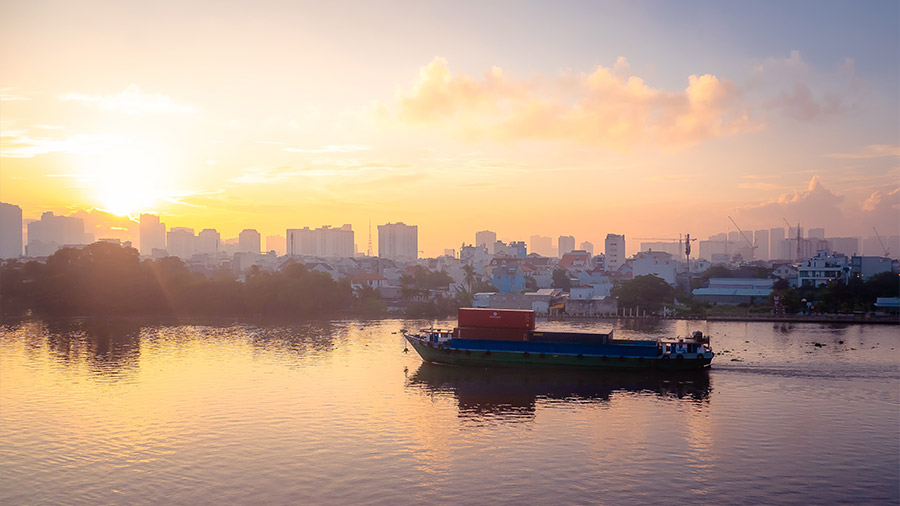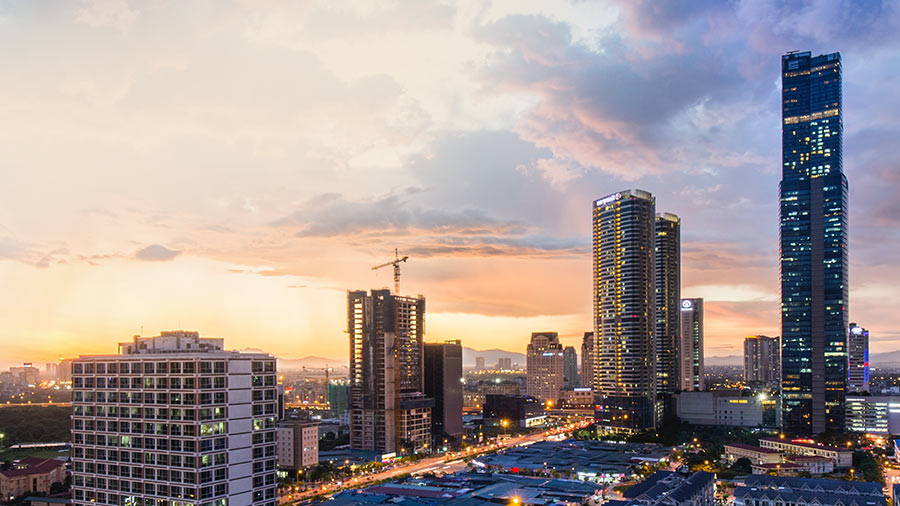Strategic importance of EPZs in Vietnam's Global Trade ambitions
Vietnam’s Export Processing Zones (EPZs) are specially designated areas that provide businesses with a range of incentives, such as tax exemptions and simplified customs procedures, designed to attract foreign investment and boost exports.
The EPZs in Vietnam offering a conducive business environment, EPZs help Vietnam to compete more effectively in the global market, facilitating the production and export of high-value goods. This, in turn, enhances the country’s trade balance and strengthens its economic resilience.
Moreover, EPZs are integral to Vietnam's strategy of diversifying its export markets and reducing dependency on any single market. By promoting a wide range of industries—from electronics and textiles to automotive and consumer goods—EPZs contribute to a more balanced and robust economic structure. They also play a key role in technology transfer, skill development, and the adoption of international best practices, which are essential for the long-term competitiveness of Vietnam’s economy.
Correlation between Export Processing Zones (EPZs) and Export Processing Enterprises (EPEs)
Export Processing Zones (EPZs) and Export Processing Enterprises (EPEs) share a symbiotic relationship, where EPZs provide the infrastructure and regulatory framework necessary for EPEs to operate efficiently and competitively. In return, EPEs—companies established within these zones—drive economic activity by manufacturing goods primarily for export. That said, EPEs can also choose to be located in regular industrial parks, provided that they meet the facilities requirements by the government.
|
Aspect |
Export Processing Zones (EPZs) |
Export Processing Enterprises (EPEs) |
|
Role |
Provide infrastructure and regulatory framework |
Drive economic activity by manufacturing goods primarily for export |
|
Advantages to EPEs |
|
|
|
Contribution to EPZs |
N/A |
|
|
Interdependence |
Ensure EPZs remain vibrant and dynamic by attracting new businesses and investments |
Benefit from the conducive environment provided by EPZs |
|
Collaboration Effect |
Facilitate creation of industrial clusters, leading to greater efficiency, shared resources, and innovation through collaboration |
Enhance overall productivity and competitiveness of enterprises within the zones |
Historical evolution
The concept of EPZs in Vietnam was introduced as part of the country’s broader economic reforms initiated in the late 1980s. These reforms, known as Đổi Mới, were crucial in transforming Vietnam from a centrally planned economy to a more market-oriented one, opening the door to foreign investment and trade.
The Vietnamese government recognized the potential of EPZs to attract foreign direct investment (FDI), boost exports, and create employment opportunities. Consequently, a series of policies and regulations were enacted to establish and promote these zones. These policies included tax incentives, duty exemptions, and streamlined customs procedures, all designed to make Vietnam an attractive destination for international businesses.
Over the years, the government has continued to refine and enhance the regulatory framework governing EPZs to ensure they remain competitive. This includes improvements in infrastructure, administrative efficiency, and legal reforms aimed at protecting investors' rights. The evolution of these zones reflects Vietnam’s commitment to integrating into the global economy and enhancing its export capabilities.
Located in Ho Chi Minh City, Tan Thuan was the first EPZ in Vietnam and served as a model for subsequent zones. Its success was instrumental in demonstrating the viability and benefits of EPZs, both to the government and potential investors.
Tan Thuan was strategically developed with modern infrastructure, efficient logistics, and attractive investment incentives. These features helped to attract a diverse range of businesses, from electronics manufacturing to garment production, setting a precedent for the types of industries that would thrive in Vietnamese EPZs. The zone quickly became a hub for export-oriented activities, significantly contributing to the local economy and setting the stage for future EPZs.
The success of Tan Thuan prompted the Vietnamese government to replicate its model in other parts of the country. This led to the establishment of additional EPZs, each tailored to leverage the unique advantages of their respective locations. Over time, these zones have collectively contributed to Vietnam’s emergence as a significant player in global trade.
Key Export Processing Zones in Vietnam
Tan Thuan
Tan Thuan Export Processing Zone, established in 1992, is Vietnam’s first EPZ and serves as a benchmark for subsequent zones. Located in Ho Chi Minh City, Tan Thuan has become a hub for various industries, including textiles, electronics, high-tech software, electric appliances, and precision machinery. The zone’s modern infrastructure and strategic location have attracted over 200 investors from 22 countries, including prominent companies like Sanyo Semiconductor Co., Ltd, Toyo Precision Co., Ltd, and Nidec Tosok Corporation.
With an impressive occupancy rate of over 95 percent, Tan Thuan EPZ exemplifies the successful integration of diverse industries, driving economic growth and enhancing Vietnam’s export capabilities.
Linh Trung I, II, III
The Linh Trung Export Processing Zones, a joint venture between Vietnam and China, consist of three phases: Linh Trung I, Linh Trung II, and Linh Trung III. These zones focus on a wide range of industries, including mechanical engineering, electronics, chemicals, high-tech, and supporting sectors.
Linh Trung I and II have reached full capacity, hosting more than 60 projects primarily driven by investors from Hong Kong, Taiwan, South Korea, and Japan.
Linh Trung III continues to attract significant investments, especially from China, South Korea, and Japan. Notable investors include Nisei Electric Vietnam, Kachiboshi Vietnam Co., Ltd, Freetrend Industrial A Co., Ltd, Katagiri Industry Vietnam Co., Ltd, and Hansea Vietnam Co., Ltd.
Occupancy rates and industry diversity
Vietnam’s EPZs boast high occupancy rates and host a diverse array of industries. Tan Thuan EPZ, with over 95 percent occupancy, accommodates a wide range of sectors such as textiles, electronics, and precision machinery.
Similarly, Linh Trung I and II have reached full capacity, demonstrating their attractiveness to international investors. The diverse industries within these zones, including mechanical engineering, chemicals, and high-tech sectors, contribute significantly to Vietnam’s economic growth and global trade presence.
Strategic benefits and economic impact
Economic impacts
Vietnam’s Export Processing Zones (EPZs) have significantly contributed to the nation’s economic growth, particularly in terms of GDP, export volume, and employment. These zones have become vital engines driving economic development by attracting substantial foreign direct investment (FDI), which has, in turn, boosted industrial output and exports. EPZs have been instrumental in diversifying Vietnam’s industrial base, moving from traditional sectors like textiles to high-tech industries, thereby enhancing the overall economic resilience of the country.
EPZs have directly increased export volumes by providing a conducive environment for export-oriented manufacturing.
Moreover, EPZs have been pivotal in job creation, offering employment opportunities to thousands of Vietnamese workers. The presence of multinational corporations in these zones has led to skill development and technology transfer, further strengthening the local workforce. This influx of skilled labor and technological advancements has enhanced productivity and innovation within the country, contributing to sustainable economic growth.
Strategic advantages
For investors, Vietnam’s EPZs offer strategic advantages that are hard to match. One of the primary benefits is the proximity to major shipping lanes, which facilitates efficient logistics and reduces transportation costs. This geographical advantage ensures that businesses can quickly and cost-effectively export their goods to global markets.
Additionally, the zones’ infrastructure is designed to support high-volume manufacturing and export activities, making them ideal for businesses looking to scale their operations. The presence of a well-established network of suppliers, service providers, and logistics companies within EPZs further enhances operational efficiency and competitiveness.
Incentives
Vietnam’s EPZs’ key incentives include:
- Tax exemptions: EPZ-based enterprises (EPEs) enjoy corporate income tax (CIT) exemptions or reductions, depending on their location and business activities. These incentives often include preferential tax rates, tax holidays, and land rental reductions.
- Streamlined customs procedures: EPEs benefit from simplified customs processes, which facilitate the import of raw materials and export of finished goods without the burden of complex regulations. This ensures smoother and faster operations.
- Duty exemptions: EPEs are exempt from paying duties on imports and exports, including value-added tax (VAT). This exemption significantly reduces the cost of raw materials and components, enhancing the global competitiveness of EPEs.
Comparison with Benefits in Industrial Parks (IPs) and Economic Zones (EZs)
While EPZs offer a unique set of incentives and advantages, Industrial Parks (IPs) and Economic Zones (EZs) in Vietnam also provide attractive benefits to investors. Here’s a comparison:
|
Aspect |
Export Processing Zones (EPZs) |
Industrial Parks (IPs) |
Economic Zones (EZs) |
|
Corporate Income Tax (CIT) |
Preferential CIT rates and exemptions; often more favorable terms, especially concerning customs duties and VAT. |
Preferential CIT rates and exemptions based on business line and location. |
Preferential CIT rates and exemptions based on business line and location. |
|
Customs Duties |
EPEs are exempt from import and export duties. |
Duties on raw materials are not automatically exempt but can be refunded under certain conditions. |
Similar to IPs; duties on raw materials are not automatically exempt but can be refunded. |
|
VAT |
EPEs benefit from VAT exemptions. |
Non-EPEs must pay VAT but can apply for refunds if specific criteria are met. |
Similar to IPs; VAT applies but can be refunded under certain conditions. |
|
Land Rent and Land Use Tax |
Offers land rent and land use tax incentives; more favorable conditions, especially in areas with extremely difficult socio-economic conditions. |
Offers land rent and land use tax incentives. |
Offers land rent and land use tax incentives; similar to EPZs, especially in designated difficult areas. |
Global comparisons
Comparison with India and Bangladesh
Vietnam's EPZs can be compared to similar setups in other emerging markets like India and Bangladesh. Both countries have established EPZs to boost exports and attract foreign investment, but there are notable differences in their approaches and outcomes.
|
Aspect |
Vietnam EPZs |
India SEZs |
Bangladesh EPZs |
|
Incentives |
Tax breaks, simplified customs procedures |
Tax breaks, simplified customs procedures |
Tax breaks, simplified customs procedures |
|
Regulatory requirements |
Streamlined administrative processes |
Complex regulatory requirements, bureaucratic delays |
Moderate regulatory requirements |
|
Labor costs |
Low |
Moderate to high |
Very low |
|
Labor Rights and Safety Standards |
Strict regulations, secure environment |
Moderate regulations |
Significant challenges related to labor rights and safety standards |
|
Foreign investment |
Significant, diverse industries |
Significant, diverse industries |
Significant, primarily garment industry |
|
Trade agreements |
Favorable |
Moderate |
Very favorable |
|
Operational efficiency |
High due to streamlined processes |
Often hindered by regulatory and bureaucratic issues |
Moderate efficiency |










